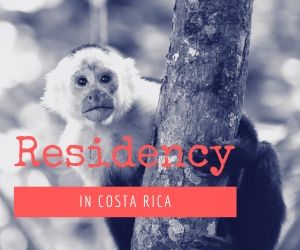|
How can a country where it rains fresh water every day in prodigious
amounts, have polluted drinking water...?....Article in Today's Tico Times
State of Emergency Requested
By Robert Goodier
Tico Times Staff
Fourteen months after the discovery of a diesel and oil leak into a drinking reservoir in Barreal de Heredia, authorities are taking sudden, decisive action: the National Emergency Commission (CNE) called for a declaration of emergency Wednesday that, if signed by President Abel Pacheco as expected, will loosen government purse strings for the expensive cleanup. The polluted reservoir, under the auspices of the Heredia Public Services Company (ESPH), is 160 meters deep and coated with an oil slick 20 meters below the presumed source of the leak – a gas station that was closed after discovering the problem.
So far, there is no sign the gas has contaminated other reservoirs or aquifers, but if it does, as authorities suspect it could, it will render undrinkable the tap water of up to 320,000 people in Heredia and San José (TT, June 24).
Heaping further pressure on the embattled National Water and Sewer Institute (AyA) – which faced at least one other water-quality controversy earlier this year when a study showed dangerously high nitrate levels in drinking water, and is now embroiled in an epic workers' strike – residents of an upscale neighborhood in Santa Ana, west of San José, discovered feces in their tap water this week.
Environment Minister Carlos Manuel RodrÃguez, meanwhile, maintains that water pollution here is dire enough to warrant not a regional, but a national state of emergency.
Cleanup of the Barreal spill will involve high-priced pumps suited to the task and foreign specialists who know how to operate them. The gas and oil mixture is not only toxic, but flammable, and efforts to extract it from the water could result in an explosion, according to Rafael Villalta, AyA president.
The emergency declaration will free funds not only to contract a private company to clean the spill, but also to hire specialists to study and improve gas stations around the country to prevent such spills and “Ojalá (God willing) protect the country's aquifers,†Villalta told The Tico Times.
It will also fund further research to determine the extent of the pollution and the odds that it will seep into the general water supply.
Critics decried bureaucratic inaction in June when the CNE declined to request a state of emergency declaration, saying the situation did not “meet certain judicial criteria necessary to declare an emergency,†(TT, June 24). The difference between then, nine months after the spill was first discovered, and now is unclear, and CNE officials did not explain – they did not respond to Tico Times phone calls over three days this week.
Villalta's institution has involved itself with the pollution from the beginning, he said, and made the recommendation to the CNE that it request a state of emergency. It has paid more than ¢50 million ($102,000) to date for a quality control study of the water and for the salaries of personnel handling the issue, he said.
Regardless of AyA's response, critics have heckled the government's reaction to the spill, saying authorities have had their hands tied in red tape (TT, June 24) – compounded by the fact that the Environment and Energy Ministry (MINAE) had only one inspector to watch over the country's 650 gas stations. The inspector didn't discover the leak from the station; rather, the water service provider, ESPH, discovered the contaminants during a routine test in September 2004.
THREATS from the Tap: An underground oil leak, apparent sewage contamination and a study showing high nitrate levels are among the drinking-water problems the Water and Sewer Institute (AyA) has faced this year.
Tico Times/Mónica Quesada
An inter-institutional commission of officials from the Health Ministry, AyA, ESPH and the Belén Municipality, which manages the region, was formed after the discovery of the pollution to study it and watch over any possible seepage into other wells and water sources. It still has not determined how the gas and oil infiltrated the water, or how deeply it has penetrated into the aquifer that feeds the well.
MINISTER RodrÃguez told The Tico Times a state of emergency for this particular case is not enough.
“I support the declaration, but we should do something more significant. It would be more opportune to declare a state of emergency in the whole country,†he said, claiming that water sources around the country are polluted to such an extent that only drastic government intervention will save them.
Why won't that happen? “The agricultural sector resists,†he said. “It has a lot of influence, especially the Farmers Chamber, which is an organization that does not believe in environmental protection because they are the biggest polluters.â€
In April, scientists at the Universidad Nacional, also in Heredia, released a study claiming septic tank leaks and chemical runoff from coffee plantations had laced drinking water with dangerous levels of carcinogens (TT, April 15). AyA officials contested the finding, saying the levels were within international norms using a different standard than the UNA scientists (TT, April 29, May 27).
RESIDENTS of Santa Ana 's Bosques de Lindora neighborhood and commercial district say that when they discovered feces in their tap water this week, they could not contact AyA officials, who were presumably tied up with its general strike that is now in its 33rd day.
Workers are asking for an 18% salary increase, and have so far rejected the lower increases offered by the government. Yesterday, the strike received a major setback when the Second Circuit Labor Court in San José reversed an Oct. 26 ruling that the strike was legal. (The government appealed that decision, prompting the reversal.)
Since it is now illegal, workers will not receive wages for days missed. The National Association of Public and Private Employees (ANEP) has announced it may organize a national strike in support of the AyA employees. The strike has not affected the supply of drinking water – though workers now threaten that might change, according to wire service ACAN-EFE – but it has affected other services such as bill collection and, apparently, service at the AyA information line.
Bosques de Lindora residents tried to call the line but only reached an answering machine, the daily La Nación reported. Their tap water appeared cloudy with brown particles, which the residents had tested at a private laboratory. The tests showed the particles were fecal matter.
AyA investigators discovered a sewage leak nearby and were expected to have repaired it by press time.
“I want to say that we are now taking action and are doing everything to figure out what happened,†Villalta told The Tico Times.
Sewage problems are nothing new to AyA, either. San José 's dilapidated sewage system sloughs off untreated waste into rivers and leaves 55% of the population without access to the system (TT, Feb. 4). It is due for a tune-up, which should come in the form of a $437-million overhaul planned for 2009. Meanwhile, a third of San José residents have noticed raw sewage in the greater metropolitan area, according to a 2004 survey AyA commissioned.
_________________
The difference between a Sea Story and a Fairy Tale is that a Fairy Tale starts out 'Once Upon a Time..' and a Sea Story starts out 'This is no Shit...'
(export version only, some restrictions may apply, some assembly required, not valid where the sun don't shine...
if you live in the states of Poverty, Darkness or anywhere outside of The Blessings of Civilization Trust, Inc...other rules may apply)
|









